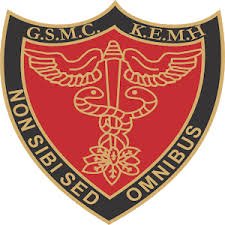Uncover the future scope and benefits of specializing in MD Hematopathology - Forge a promising career in blood pathology and diagnostics.
Future Scope & Benefits of MD Hematopathology
MD Hematopathology is an advanced medical specialization that focuses on the study and diagnosis of disorders related to blood cells and tissues. This program equips pathologists with the specialized skills and knowledge required for diagnosing and managing a wide range of hematologic conditions. In this article, we will explore the details of the program, its future scope, and the benefits it offers.
Future Scope of MD Hematopathology
MD Hematopathology offers a diverse array of opportunities for pathologists specializing in hematologic care:
1. Hematopathologist:
• Graduates can work in hospitals, diagnostic laboratories, or specialized hematopathology units, where they diagnose and manage a wide range of hematologic conditions.
2. Academic Pursuits:
• Teaching positions in medical colleges and institutions, where they educate future pathologists and contribute to the academic growth of the field.
3. Research Opportunities:
• Engaging in clinical or translational research aimed at advancing the understanding and treatment of hematologic disorders.
4. Multidisciplinary Collaboration:
• Collaborating with hematologists, oncologists, radiologists, and other specialists in a multidisciplinary approach to patient care.
5. Laboratory Management:
• Overseeing and managing hematopathology laboratories, ensuring the accurate and timely diagnosis of hematologic conditions.
Benefits of Pursuing MD Hematopathology
Pursuing MD Hematopathology offers several benefits for pathologists:
1. Specialized Expertise: Graduates have highly specialized knowledge and skills in hematopathology, allowing them to offer comprehensive diagnostic services for hematologic conditions.
2. Fulfilling a Critical Role: Hematopathologists play a crucial role in accurately diagnosing and managing complex hematologic disorders, potentially impacting patient outcomes and treatment plans.
3. Contribution to Hematologic Medicine: Specialists in hematopathology contribute significantly to the field of hematologic medicine by providing accurate and timely diagnoses.
4. Research and Innovation: They have the opportunity to contribute to advancements in the understanding and treatment of hematologic conditions through research endeavors.
5. Personal Fulfillment: The ability to make a positive impact on the lives of patients with hematologic disorders can be personally fulfilling for practitioners.
6. Holistic Patient Care: They work closely with a multidisciplinary team to ensure comprehensive care for patients with complex hematologic conditions.
 3 Years
3 Years
 Post Graduate
Post Graduate
 Medical
Medical
 Full Time
Full Time



 back
back

